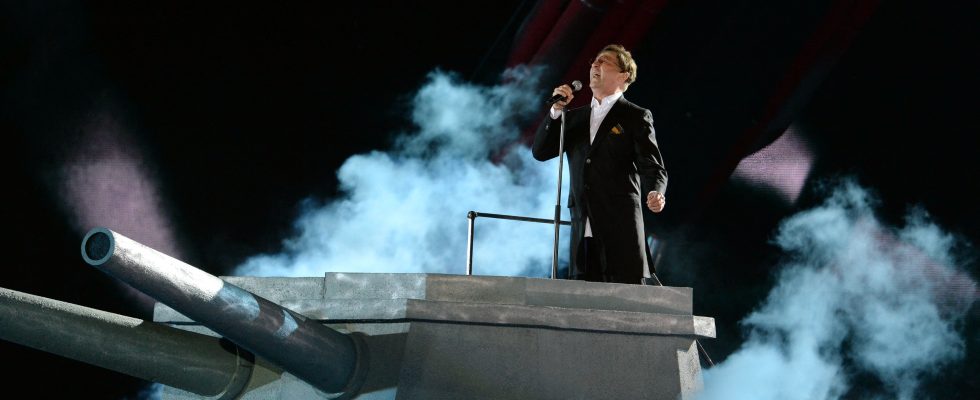Everything had been ready for months for the Central Asian tour of Grigory Leps, an ultra-patriotic Russian singer. But three weeks before his first concert, scheduled for July 8 in Konayev, Kazakhstan, local authorities made the decision to cancel the concert. The same goes for his other shows, on August 2 in Kyrgyzstan and October 23 in Tashkent, Uzbekistan, due to the massive boycott organized by local populations.
A political commitment which, however, is not very popular in the former Soviet republics of Central Asia. Since the start of the war, concert cancellations have increased for Russian artists, whose pro-Putin outbursts are not really appreciated by the local public. This is evidenced by the adventures of the Zhara Festival, a major annual event for Russian pop music. Supposed to be held in March 2023 in Almaty, the largest city in Kazakhstan, the festival was postponed to May in Tashkent, capital of Uzbekistan, before finally being buried by the organizers. The reason ? The three days of concerts brought together almost exclusively singers who had sworn allegiance to the Kremlin’s imperial war: Polina Gagarina, Egor Kreed, Ani Lorak, Sergei Lazarev… These headliners are now nicknamed the “Z-artists” throughout the region – the letter Z being the symbol of support for the Russian annexation of Ukraine. In a few days, the hashtag #StopKremlinPropaganda became the most popular in Uzbekistan on X (formerly Twitter).
Musicians are not the only ones to suffer opprobrium. Russian comedians, whose jokes against Putin are considered too indulgent, are no longer welcome. In September, a petition circulating online collected 20,000 signatures calling for the cancellation of a tour by Kamyazaki, a Russian comedy troupe that had previously performed in the occupied Ukrainian territories.
“The young populations of Central Asia do not want to support the aggression of one country on another. We are no longer in the time of the Soviet Union!” explains Kazakh sociologist Valeria Ibraïeva. Since the large-scale invasion of Ukraine, the rate of “very unfavorable” opinion towards Russia has continued to increase in the Central Asian republics, according to opinion polls carried out by the independent institution Central Asia Barometer, based in Kazakhstan. This translates directly into the music industry, “which is currently experiencing a process of decolonization”, according to Valeria Ibraïeva, that is to say a reclaiming of their culture and their identity, to the detriment of Russian influence.
However, the elites of these countries do not follow the same path, as they remain economically and diplomatically dependent on Moscow. Scheduled for early October in Almaty, the shows of Russian comedian Maxim Galkine, known for his anti-war positions, were canceled – officially for “technical problems”. But according to the comic, the Kazakh “top of the state” intervened directly…
Same fate for the concerts of the rock group SBPC and the singer Zemfira, scheduled for May and August in Uzbekistan, discreetly canceled. In Kyrgyzstan, the Russian dissident punk group Pornofilmy and the Russian rapper Morgenshtern, whose lyrics are resolutely committed against the war, were also unable to perform. The decolonization of Central Asia is not for tomorrow.
